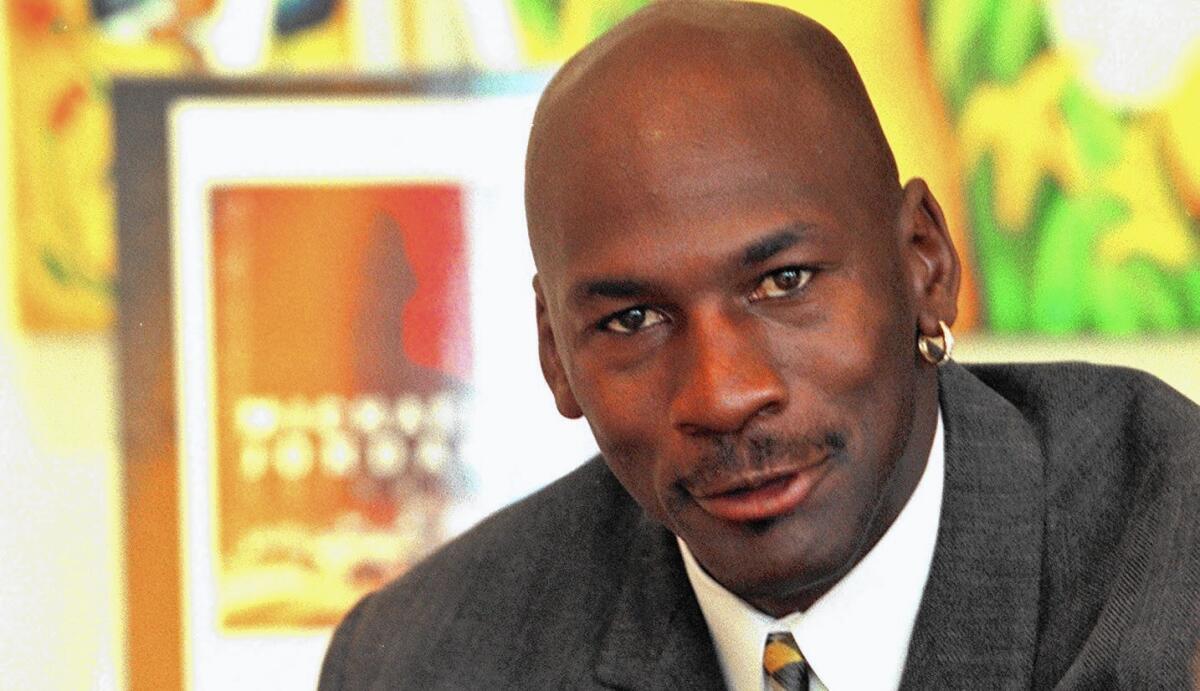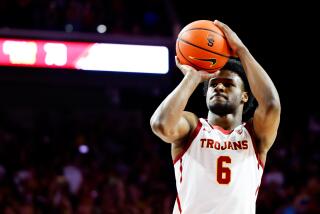Career Coach: Training to become a world-class ‘business athlete’

Michael Jordan pushed himself and his teammates to win at every chance.
Wouldn’t it be great to harness the drive that makes athletes successful? The qualities that make a great athlete are strikingly similar to the qualities that make for a great business leader.
That’s why some firms look to hire people with athletic traits. But anyone can adopt the principles of successful sports figures to be a world-class “business athlete.” Here’s some key attributes:
•Total commitment — 100% all in to the vision of success.
•Tenacity and persistence — the drive to work on something until it succeeds, rather than giving up. Think Michael Phelps at the Beijing Olympics.
•Strong work ethic — practice, practice, practice until mastering something. Can you imagine Serena Williams deciding she just didn’t feel like practicing before the U.S. Open tournament?
•Goal-driven — set specific goals and define a plan for achieving them. Athletes will tell you what they are working on and what goals they have set.
•Continual learner and dedicated to self-improvement.
•Willingness to experiment and openness to change. Remember when Michael Jordan decided to play baseball? You have to give him credit for that courage — to leave something he was already successful at to try something new. How many of us show guts in our jobs, to leave something we are comfortable with to try something new?
•Entrepreneurial — look at the bigger, strategic picture and utilize a broad set of skills for success.
•Passion — love what you do, and it will show. How many people at work look like they love being there?
•Leader and team player — most athletes who excel on team sports understand how to successfully make teams work by addressing conflict, setting norms and goals, clarifying expectations and such. Athletes recognize that for the team to do well, they need to determine what everyone’s unique talents are and then figure out how to best utilize them. Peyton Manning has focused on this in football — pulling the team together to ensure the best talents are being used.
•Recognize the importance of physical, mental, emotional and spiritual capacity — keep all parts working in a healthy way for success. As authors Jim Loehr and Tony Schwartz write in their popular articles and books (“The Power of Full Engagement” and “The Way We’re Working Isn’t Working”), the ideal performance state is when all four types of capacity are working together. Yet employers often hire based solely on cognitive or mental capacity and assume that is the most important factor when creating a successful culture.
•Focus — laser focus on a goal, and avoidance of all those things that are not relevant.
•Competitive spirit and desire/will to win — Jordan pushed himself and his teammates to win at every chance. He always wanted to be the best. What if everyone thought this way in your company — that everyone wanted to be better than the competitors?
•Scrappiness or hustle — athletes work to prove themselves and push themselves harder than the next person. They hustle to show others that they will keep at it.
Research shows that athletes are more likely to fulfill a greater percentage of their potential on the job. Some estimates for senior-level positions measure athletes working at 90% of their potential versus non-athletes at 40%.
Firms with business athletes often have a high-performance culture — one with consistently higher business performance, clear vision, goal-setting, metrics for measurement. We can all train to be stronger business athletes for ourselves and our firms.
Joyce E.A. Russell is vice dean at the University of Maryland’s Robert H. Smith School of Business and director of its Executive Coaching and Leadership Development Program. She is a licensed industrial and organizational psychologist and has more than 25 years of experience coaching executives and consulting on leadership and career management. She writes a weekly Career Coach column for the Washington Post.






